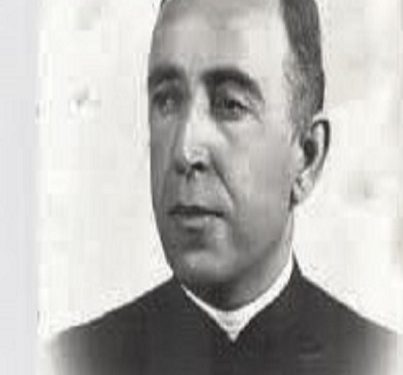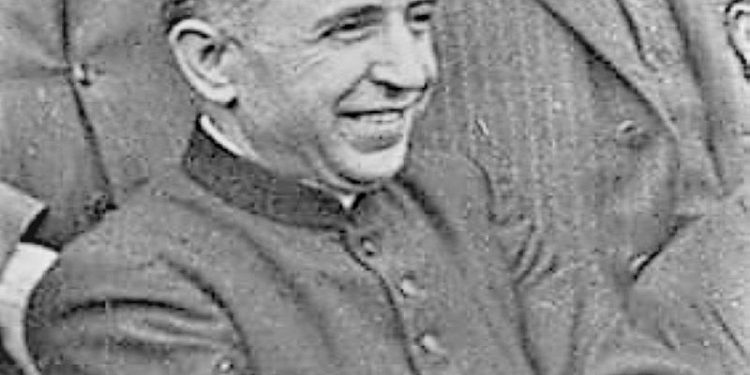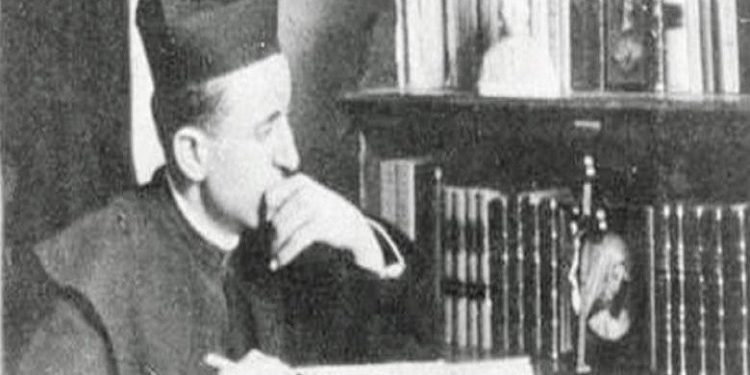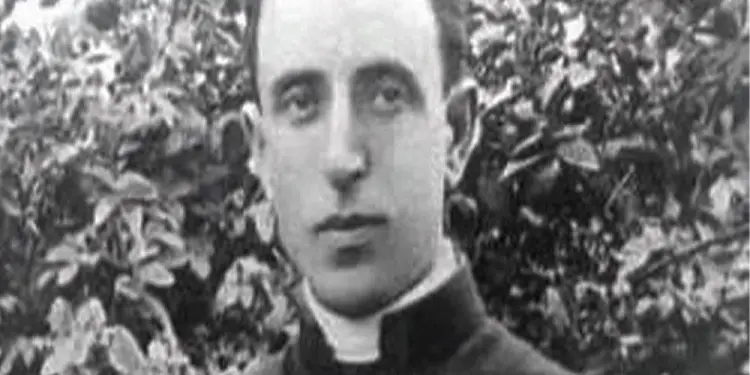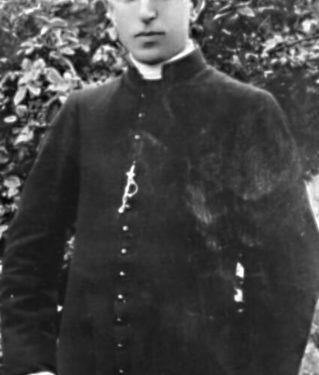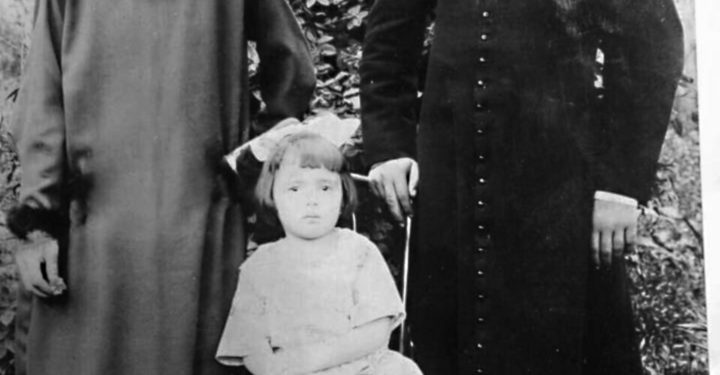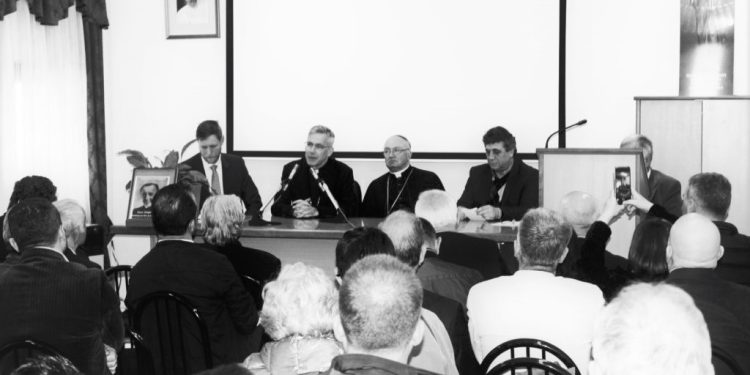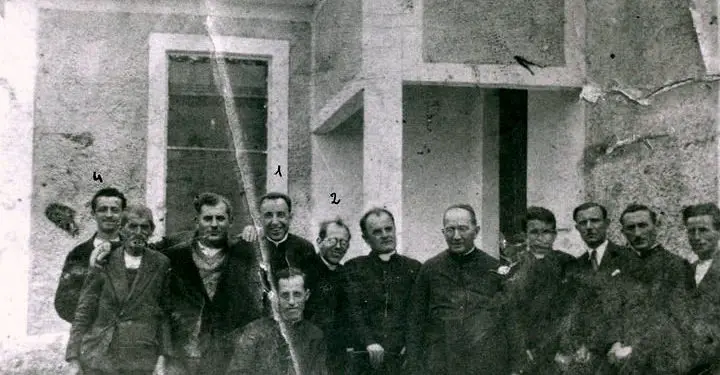NIKOLLË LOKA
Av.ALFDRED DUKA
NIKOLIN KURTI
Part twenty-five
– THE FORECAST MURDER OF A CLERGYMAN OF THE RENAISSANCE –
Continued from the previous issue
Memorie.al / Before we begin to briefly analyze the investigative and judicial file in charge of the defendant Shtjefën Kurti and others, for the reader we will make a parenthesis of the right and its history in human society, with the goal of coming to our criminal and procedural law, from its beginnings and throughout the years of the dictatorship.
A look at ‘Criminal Law’ for political crimes
After the First World War, many other special criminal laws appeared, in which the general trend in the dictatorial systems of communism and fascism can be observed, which provided for severe punishments, especially for criminal offenses against the state, especially those of ‘Agitation and Propaganda’, previously unknown works. In them, repressive measures were strengthened, primarily for so-called political crimes. This process developed faster in the countries where these systems came into force. Political crimes took center stage in the Criminal Code of the USSR, as a result of which millions were shot and exiled.
Even in our country after the installation of the dictatorship, first the changes made to the Criminal Code of 1928 by the fascist administration were abolished, then the Yugoslav criminal laws were applied, and after the fifties, those of the USSR with the Criminal Codes of 1952 and 1959 , and to come to the Criminal Code of 1977 and 1981, which were “Made in Albania” codes and were characterized especially by the total denial of even those few rights that were formally preserved in the previous codes. To illustrate what was said above, we will analyze the metamorphosis that the most “usable” provision has undergone during the years of the dictatorship, such as that of agitation and propaganda against popular power, respectively how this provision was drafted in 1959 and in 1977 and 1981. In the Criminal Code of 1952, Article 73 provided:
Agitation and propaganda against popular power
-Agitation and propaganda that contain calls to undermine or weaken popular power, as well as the preparation, dissemination or storage for dissemination of writings with such content are punished: with deprivation of liberty from three to ten years, with or without confiscation of property. ..”!
This provision, even as it is, is in flagrant opposition to the right to free thought and speech, not to mention the practical way of appealing it, since hundreds of thousands have been sentenced to very heavy prison terms, on the basis of this provision, but violating it both in letter, word and spirit, at least as drafted. Why do we say that? From its literal reading, the basis of the established legal relationship that violates it is the ‘CALL’, as well as the ‘WRITINGS’ and their dissemination with the intended purpose, to ‘MINUTE’ or ‘WEAK’ the popular power, so not the opinion, nor his appearance, so also not the various conversations that could take place between the persons, whatever they might be. However, here we are briefly analyzing the content of this provision, as it is widely known how it has been applied in practice.
Finally, all persons who have been convicted for the criminal offense of Agitation and propaganda against the popular power, until the approval of Law No. 5591 dated 15.06.1977. who have not called to undermine or weaken popular power, as well as the preparation, dissemination or storage for dissemination of writings with such content, have been punished without the law, even as dictatorial as it was?
Dictatorship is like that model of shackles, that the smallest movement is accompanied by their tightening. The mechanism was the same. The time had come that the madness I did concretely, should be put into a Document that would be called the ‘Constitution of the People’s Socialist Republic of Albania’. From a constitutional point of view, it was stupid, but here we will focus on the metamorphosis of the Agitation Article, which originated from this Constitution.
Let’s see how the “legislator” has changed the above provision of Agitation after twenty-five years “Agitation and propaganda against the state” Article 55 of the Criminal Code of the People’s Socialist Republic of Albania, entered into force on 01.10.1977:
“Agitation and propaganda against the state”, Article 55 of the Criminal Code
“Fascist, anti-democratic, religious, war-mongering, anti-socialist agitation and propaganda, as well as the preparation, possession, or storage for the dissemination of literature with such content, to weaken or undermine the state of the dictatorship of the proletariat, is punished: with deprivation of liberty from three up to ten years…”.
The history of our criminal law
The Assembly of Vlora, convened on November 28, 1912, although it declared Albania an independent state, but due to concrete, historical internal and external conditions, it adapted the Ottoman Penal Code, which remained in force until 1928. In 1913, for the first time first, the law on judicial construction, known as the Jury Code, was drawn up in Albania, according to which the courts of first instance were created, where civil cases and some criminal cases were examined in general.
The canon of the jury distinguished three types of guilt: the guilt of damages (against the goings-on), the difficult guilt (delicacies) and the guilt of damages (crimes). These crimes would be judged on the basis of Albanian customary law.
During the years of the Balkan War and the First World War, our country was occupied by the Greek, Serbian, Italian, French, Austro-Hungarian armies. Consequently, in every area occupied by enemy military forces, the penal legislation of this or that occupying state operated. In the conditions of the reign of political anarchy, of contradictions with foreign countries, new laws emerged. On April 27, 1920, the penal law for political guilt came out, which foresees a number of figures of crimes against the state; agitation and propaganda, serving foreign countries, organizing armed gangs, etc.
This law was supplemented and amended in the following years. Thus, with the addition of the law dt. On 29.4.1922, the punishment with the loss of civil rights was also foreseen.
On January 21, 1925, the Constitutional Assembly proclaimed the Albanian Republic. Among the most important acts was the Criminal Code, approved by the legislative chambers on 28.V. 1927, which entered into force on 1.1.1928.
The Penal Code of 1928 was divided into three parts:
The first book with ten titles prescribes the faults and punishments generally (ie the general part); the second book with 10 titles and 65 chapters provides for delicts, the third book with 4 titles and 25 chapters provides for contraventions (misdemeanors).
In the general part (a total of 110 articles), the principles of taking criminal responsibility are provided by announcing the principle that “No one can be punished for an offense that the law has not expressly (explicitly) foreseen as a crime; it also cannot be punished with punishments that are not specified in the laws” (n.1)”.
The first blow to the Criminal Code of the Kingdom was given by law No. 61 dated May 17, 1945, on the abrogation of the previous legislation and especially in the interpretation given by the Presidium of the People’s Assembly. With Decree No. 392 dated 25/1/1947. In the law No. 61 dated 17/5/1945, it was announced that: “The statutes, laws, decree-laws, regulations and decrees formulated during the time of the Italian and German occupation were abrogated and declared invalid” (Article 1) and below, in Article 3 it was stated: “Laws, decree-laws, decrees and regulations that were in force in Albania before April 7, 1939, remained valid for the future…”!
In the Decree of the Presidium of the People’s Assembly No. 392 dated 25.1.1947 on the authentic interpretation of Article 3 of Law No. 1 dated May 17, 1945, it is said that the previous provisions are valid as legal rules, but not as provisions in force, when they do not contradict the new democratic spirit and the legal acts of popular power.
So even if the provisions of the Penal Code of 1928 acted temporarily, for some crimes, they had the value of legal rules that in any case were interpreted and applied in accordance with the policy of the dictatorship. In 1952, we have the first Penal Code of the dictatorship, approved by the People’s Assembly of the Republic of Albania with Law 1470 dated 23 May 1952, which was followed by the changes made with Decree 2477 dated 03.06.1957 and with Law No. 2804 dated 04.12.1958, published in 1959, which were a copy of the Criminal Code of the USSR with minor and insignificant changes. This Code was in force until 1979 with the approval of the new code with Law No. 6069 dated 25.12.1979.
Bearing in mind that the dictatorship committed human rights violations especially after the arrest and during the investigation phase, respectively with the use of violence within the detention facilities, we will see how the investigation was generally organized during those years. The organization of the investigation until 1973, in the People’s Republic of Albania, was divided into four types of investigators, respectively; State Security Investigation, Police Investigation, Prosecution Investigation and Military Investigation. The State Security Investigation investigated crimes against the state, from agitation to sabotage and treason. After the Security followed the person or persons, in order to document his or their activities, which continued for years, it forwarded the file to the investigator, who compiled a report, which he sent to the Head of the Internal Affairs Branch, the Prosecutor of the District and the Minister of the Interior.
After the assessment of the tracking file, other steps were taken for the arrest, the investigation where the materials in the file were compared with the defendant. Statements were taken, confrontations were taken, and other investigative actions were carried out. After investigations that could last more than a year, the case was taken to court. The district prosecutor defended the charge in court. The defendants were invited to take their stand on the charge. The defendant had to accept before the court the statements he had signed during the investigation, regardless of the way or form those statements were taken. In cases where the defendant opposed them, then the prosecutor who defended the charge in court had the right to ask the court to return the defendant to intensive investigations, as they were called, which presupposed investigations accompanied by violence, until the defendant was defeated, then he was brought back to court.
It is worth noting that all actions in the investigator even before 1967, when by decree it was removed as a service, the lawyer was not allowed to participate in the investigations, so in this way the defendant was completely defenseless and completely at the discretion of the investigator. who generally behaved as in the Middle Ages, with the defendants?
It is worth noting that with the installation of the dictatorship in our country, the real rights of the citizens of R. Albania came to be limited to the rights that the person had in the Middle Ages, despite a formal cover that was preserved in criminal and procedural laws, rights which in practice were not applied even as truncated as they were provided for in the respective laws. The treatment of detainees did not differ from that of the Middle Ages, as they were subjected to continuous violence, both psychological and physical, by means of what was called “intensive investigations”. By “intensive investigation”, we mean coercing the detainee through psychological and physical violence until he is defeated, in the sense of obtaining the detainee’s signature for the “crime” he is alleged to have committed, regardless of whether he was the perpetrator or no.
Practically, the follow-up by the Security bodies resulted in the collection of some data obtained in the operative way by following him and turning them into “evidence” by signing them to the investigator. If the detainee opposed them, then he was subjected to violence until he signed the Acts presented to him by the investigator, which constituted “evidence”, in his charge after signing them. Since the investigation system was declared an “Inquisitorial” system, the state allowed itself the right to use violence until the subjugation of the detained citizen. In the event that the detainee, after the end of the investigations, opposed them in court, then as we explained above, he was returned to the investigator and violence was the only means to force him to accept what was put before him by the investigator.
Comrade Enver teaches us that: “The path followed by the people and the Party for the construction of socialism was by no means a square with flowers. It has been a difficult but glorious path, which has required all the talent, all the courage and heroism, all the strength and perseverance of the people and of our Labor Party… this whole path was traversed in the conditions of a fierce class struggle , under the furious attacks and conspiracies of internal and external enemies. Our party and power, with the support of the entire people, defeated and liquidated one after another the aggressive plans and provocations of the Anglo-American imperialists, groups of spies and saboteurs, various opportunists, who appear to lead the country to the path of bourgeois development and subordination to foreign capital, the plots of Titists and Koçi Xoxa to subjugate the Party and make Albania the 7th Republic of Yugoslavia, the provocations of the Greek monarcho-fascists in August 1949, the countless saboteurs who were thrown into our country from the sea, land and air “.
This is how Prosecutor Hajredin Fuga begins the Pretense (page 196) of the court file for the defendants Shtjefën Kurti, etc., which paradoxically ends his career as a member of the Constitutional Court of the People’s Republic of Albania.
Prosecutor Hajredin Fuga, with his Claim dated 28.07.1971, against the defendants Shtjefën Kurti, Mark Marku, Agostin Preçi Pjetër Biba, Zef Nishi and Fran Noci for the crimes provided by articles 72 and 73/1 of the Criminal Code of the time, drafts an accusation, which has nothing legal or legal, but only Bolshevik propaganda. The claim that we will analyze below is unprecedented, unscrupulous, not based on the laws of the time, nor on the facts served by the State Security. End and end contradictory, a mess of information accumulated along their several years of tracking. It is a montage of pieces and facts that cannot be assembled, brought in the form of a Pretence, sewn with white cloth.
From the legal analysis of the laws of the time, as well as the facts that are collected in the file, it results that Shtjefën Kurti has only consumed the criminal offense of Agitation and Propaganda, which he has accepted. Everything else is made up and not at all based on the fates and procedural and criminal laws of the time. Every lawyer with minimal training feels insulted when browsing the concrete file, since the prosecution, the first instance court Krujë and moreover the Supreme Court, take tougher positions than the State Security itself!
Everything that has been collected and administered in the file since the Information dated 01.01.1964 until the final Decision given by the Supreme Court, does not prove any element of sabotage. It is not proven in any of the ways and forms of the objective side that the criminal and procedural law requires, it requires in order to prove that criminal offense, but Sabotage is needed by the prosecution and the courts to lead to the shooting of the defendant Shtjefa Kurti, as it turns out, commissioned from the Party. Memorie.al




